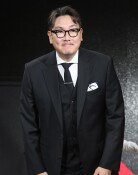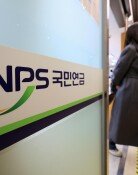Chinese Communist Party to Block Corruption of High Level Officials
Chinese Communist Party to Block Corruption of High Level Officials
Posted February. 18, 2004 23:00,
On February 17, the Chinese Communist Party has disclosed Supervising Regulations of the Communist Party that include even members of the administration agency, referred to as the most powerful government organization in China, within the boundaries of its ongoing corruption prosecution. The reason for conducting supervising regulations 13 years after the original issuing in 1991 was due to the conclusion that corruption of high-level officials in the communist party has reached limits that are threatening the existence of the party itself. It is the first time the Chinese Communist Party, which has approximately 68 million members, has implemented internal supervising regulations since the formation of the party and its seizure of political power in China.
The regulations, made up of the 47 provisions and 6,600 letters, provide for the report of superior offices to subordinate agencies and periodical reports by the administration agency to the central committee, which used to be a titular agency. In particular, the reports will be carried out using real names.
In addition, when formulating major policies like the large-scale investment program, reports should be passed on to general meetings rather than following individual opinions. It also allows common party members to listen to opinions and propose their own ideas as to the appropriate policy, in order to prevent the basis for the corruption.
Also, the regulations provide that any contingency should be reported to the superior office, and any omission or mendacious report should be strongly punished. It seems that this provision was designed because of the large-scale damage that was caused by the concealment of the SARS outbreak last year.
In order to strengthen the supervision of high-level officials dispatched to the countryside, the central discipline audit committee, one of the major inspection agencies in China, was allowed to periodically inspect and examine the work of governmental agencies in rural areas.
It also recommends that public opinion and the press be used to supervise policymaking and corruption in government. The major points of the regulations are to introduce the supervising system to work procedures and illegal acts of high-level officials, including agents of the administration agency, remarked Ye Du-chu, a professor of the Central Party School It reflects the intention of Hu Jin-tao, the president of China, to improve the communist party through internal liberalization.
Yoo-Sung Hwang yshwang@donga.com






![장마당서 옷 팔던 北처녀, 인사동 개인전 열기까지[주성하의 북에서 온 이웃]](https://dimg.donga.com/c/138/175/90/1/wps/NEWS/IMAGE/2025/12/05/132901507.1.jpg)
